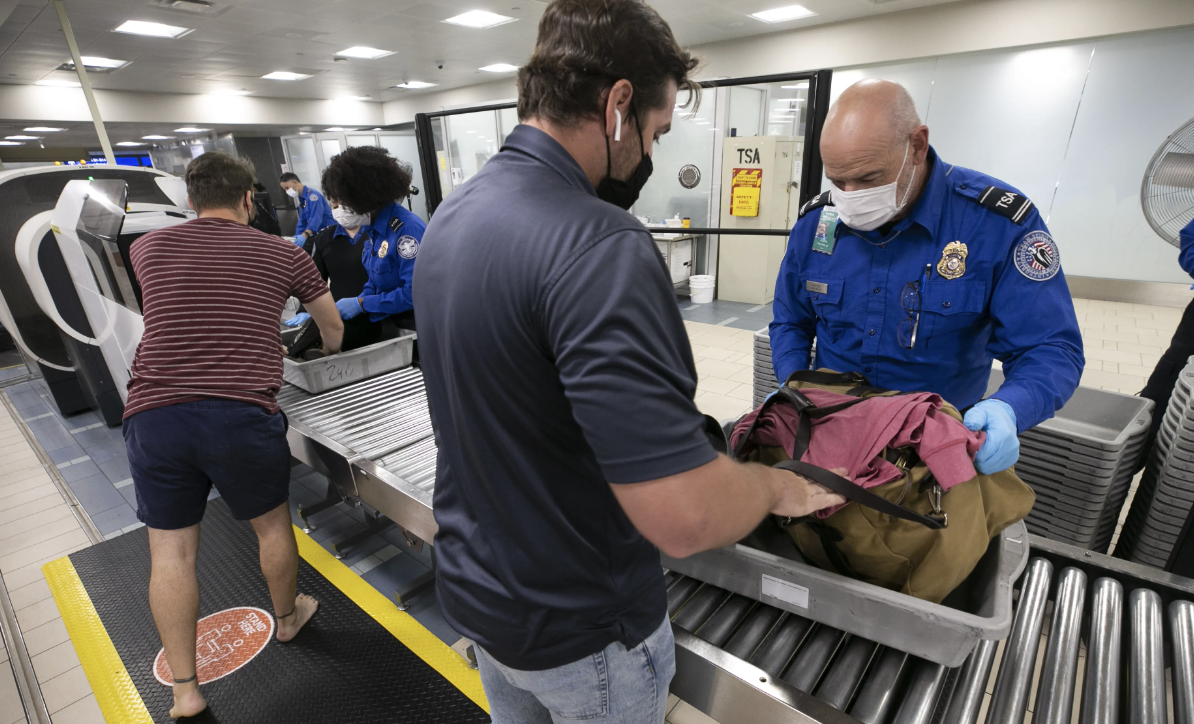A record number of guns were seized by the Transportation Security Administration (TSA) at airport security checkpoints this year, according to TSA personnel, a roughly 10% rise over the previous high mark set in 2021.
According to officials, since the start of 2022, the agency has prevented 6,301 weapons from entering protected airport zones, and it expects to detain 300 more before the new year. More than 88% of those rifles were loaded, according to the FBI.
The number of firearm interceptions surpassed the previous record of 5,972 firearms detected in 2021.
“I applaud the work of our Transportation Security Officers who do an excellent job of preventing firearms from getting into the secure area of airports, and onboard aircraft,” TSA Administrator David Pekoske said in a news release. “Firearms are prohibited in carry-on bags at the checkpoint and onboard aircraft.”
Even if a passenger obtains a concealed weapon permit, it is still illegal to carry a gun in carry-on luggage at any TSA security checkpoint since firearm possession regulations differ by state and local government. According to the organization, passengers are permitted to travel with a firearm, but it must be declared each time it is presented for carriage as checked luggage, be unloaded, and be stored in a hard-sided container.
In order to lessen the threat of firearms at checkpoints, the agency said that TSA has raised the maximum civil penalty for a firearms violation to $14,950.
Pekoske said, “When a passenger brings a firearm to the checkpoint, this consumes significant security resources and poses a potential threat to transportation security, in addition to being very costly for the passenger.”
The TSA has reportedly caught more firearms since 2010 when there were only 1,123. The COVID pandemic, which caused non-essential air travel to all but cease, caused the industry to suffer greatly, yet the number of interceptions fell by more than 1,000 in 2020.
According to University of Illinois Urbana-Champaign computer science professor and aviation security expert Sheldon H. Jacobson, “the majority of people are not doing it with nefarious intent.”
“They’re simply forgetting,” Dr. Jacobson said, adding the gun sales increasing nationwide among first-time gun buyers could explain the rise in interceptions.
According to data from Northeastern University and the Harvard Injury Control Research Center published in The Times last year, roughly a fifth of all Americans purchased a handgun for the first time, and about 39% of all American families were found to be gun owners.
A General Social Survey, a survey of public opinion carried out by a research unit at the University of Chicago, revealed that more Americans now own firearms than in 2016 when 32% did.
The most frequent excuse provided by travelers for taking a firearm through a checkpoint, according to TSA spokesman David Fitz, is “I forgot it was in the bag” or “Someone else packed my luggage for me.”
Fitz continued by saying that the majority of “sections of the country where open carry and concealed firearms permits are higher” tend to be Southern states.
According to the agency, even though some airlines may have further restrictions on carrying weapons and ammunition, travelers who intend to transport firearms by air must do so in checked luggage and must adhere to the required packing instructions for firearms in checked baggage.


